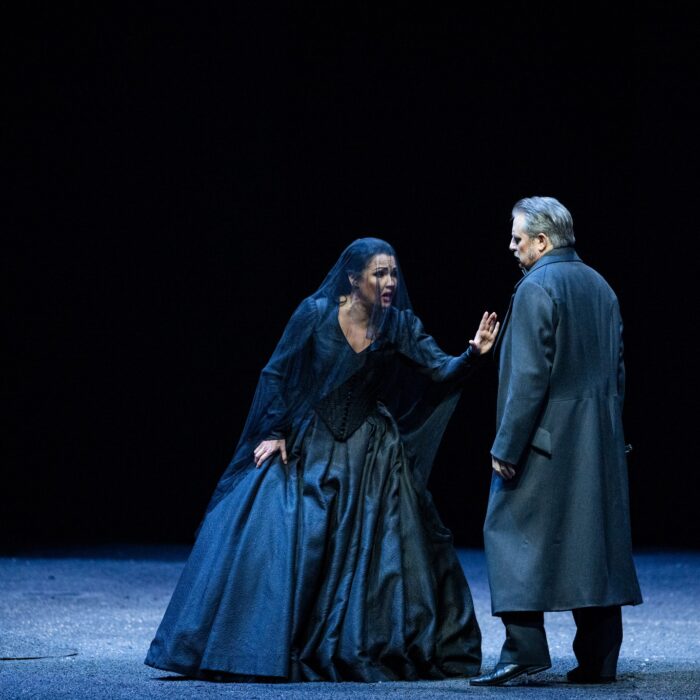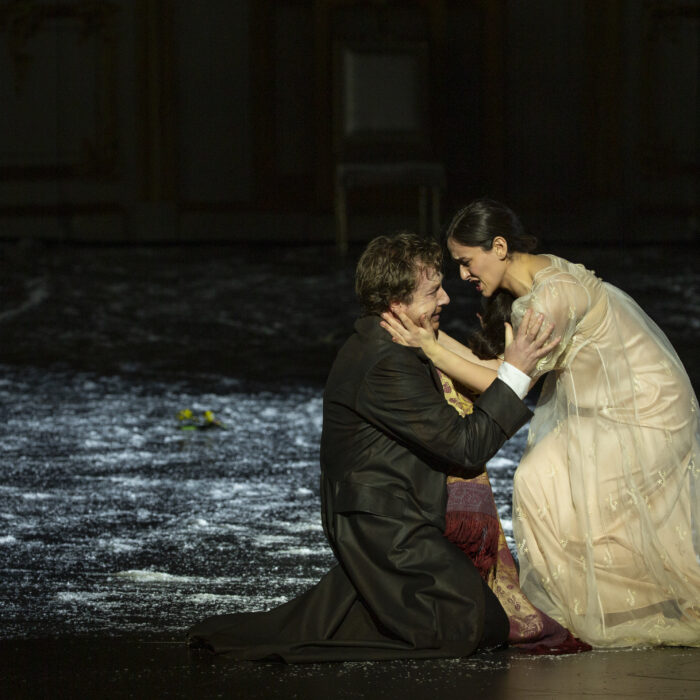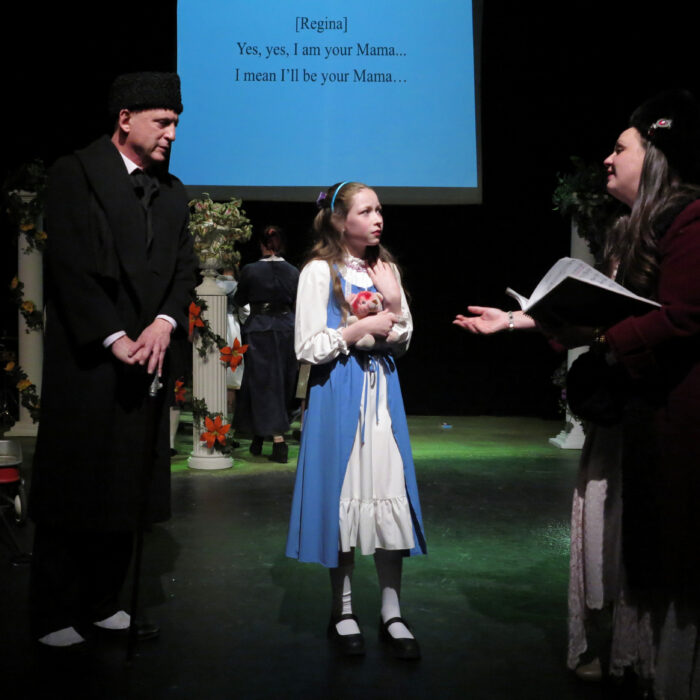
Salzburg Whitsun Festival 2024 Review: La Clemenza di Tito
By Laura Servidei(Credit: Matthias Horn)
The Whitsun Festival in Salzburg this year is titled “Tutto Mozart” and is dedicated to the city’s most famous son. The program features only one full opera, “La clemenza di Tito,” written by Mozart in 1791 while he was finishing “The Magic Flute,” making it his final opera. Created to commemorate the coronation of Emperor Leopold II as King of Bohemia, it is structured as an opera seria, a genre that was falling out of fashion at the time. Legend has it that Mozart composed the opera in just 18 days, a likely exaggeration that contributed to its reputation as a “secondary” work, written on commission and considered less significant than his other works. In recent years, however, this opera has regained its rightful place in the repertoire and is now performed almost as frequently as other Mozart operas.
The story, based on a libretto by Pietro Metastasio, revolves around the Roman Emperor Tito, who is admired for his benevolence. Vitellia, daughter of the deposed emperor Vitellius, seeks revenge against Tito for not marrying her, thus raising her to the throne. She manipulates her admirer, Sesto, Tito’s close friend, into plotting the emperor’s assassination. Sesto is torn but his blinding passion for Vitellia brings him to comply with her request. The conspiracy unfolds, but Tito survives the attempt on his life. Sesto is arrested, and he faces execution. Vitellia, afraid that Sesto will betray her role in the plot, confesses to Tito. The emperor, embodying clemency, pardons both Sesto and Vitellia, prioritizing mercy over retribution. The opera concludes with the characters reflecting on the nobility of Tito’s forgiveness and the hope for a harmonious future.
No place in This World for Tito
In director Robert Carsen’s vision, the action is moved to modern-day Italy, where Tito is portrayed as the government leader. The sets depict a contemporary office filled with men in suits and ties (costumes and sets by Gideon Davey), and women in elegant office attire. The color palette features various shades of grey, with occasional governmental blue suits for Tito and Publio, his head of security—originally the commander of the praetorian guard. The story adapts to contemporary times more seamlessly than the average opera plot, and the stage direction is crafted with meticulous care. All movements, including those of the chorus and extras, are detailed and well-executed, resulting in a well-oiled machine that effectively supports the narrative.
Carsen adds some intriguing details: during the riot in Rome’s Capitol Hill at the end of Act one, videos of the January 6th, 2021, attack on the U.S. Capitol are shown, drawing a parallel to the contemporary event where Trump’s supporters attempted to subvert the election. In the conclusion, we see Vitellia orchestrating another coup d’état, along with Publio, leading to Tito’s assassination and her seizure of power. Carsen suggests that there is no place for magnanimity in this world, and a noble, forgiving leader is destined to succumb.
Bartoli Wins Again
Tito was portrayed by Daniel Behle, arguably the best Mozart tenor of our time. The role demands a form of heroic lyricism that is very difficult to achieve, but Behle managed it with ease. His forays into Wagner territory may have helped strengthen his voice and add power without compromising its sweetness and clarity. Tito’s pièce de résistance, “Se all’impero amici dei,” was sung with seemingly effortless confidence.
Cecilia Bartoli, the artistic director and undisputed queen of the Whitsun Festival, took on the trousers role of Sesto. She recorded this role for Harnoncourt around 30 years ago and has sung it in concert performances several times, even in Salzburg, but this was her first time performing it in a staged setting. Her infallible technique supported a passionate, emotional interpretation. She adeptly conveyed Sesto’s passion and folly, his complete surrender to Vitellia, and the resulting conflicting emotions. Her rendition of “Parto, parto” was superb, with her legato beautifully expressing the melancholy of begging her beloved for a mere glance, followed by perfect coloratura in the end, almost cursing Vitellia’s beauty. The most emotional part was the recitativo accompagnato “Oh dèi, che smania è questa!” in which Sesto, having initiated the uprising against Tito, feels the full weight of his betrayal of his closest friend. Bartoli’s ability to express strong emotions in her singing is unique and irresistible.
Vitellia was sung by Alexandra Marcellier; her technique was solid and her soprano well-supported, though her timbre was not the most pleasant. Her voice tended to sound squeezed in the middle register, while her high notes were more successful. Nevertheless, her interpretation was very convincing, she was a natural femme fatale.
Mélissa Petit played Servilia, Sesto’s sister, with a sweet, silvery soprano that perfectly suited the young girl in love. However, Servilia is also strong-willed and fearless: when she learns that Tito wishes to marry her, she does not hesitate to tell the emperor to his face that she’s in love with someone else. And when Sesto is about to be condemned to death and Vitellia hesitates about helping him, Servilia promptly accuses her of being cruel and useless. Petit effectively portrayed this aspect of the role, and her aria “S’altro che lagrime” was both sweet and forceful.
Annio, Servilia’s beloved, was portrayed by Anna Tetruashvili, a young singer from the Opera Studio of the Gärtnerplatztheater in Munich. She was a very pleasant surprise; her mezzo-soprano was warm and bronzed, with a uniform timbre across her entire range. The duet with Petit, “Ah, tu fosti il primo oggetto,” was one of the performance’s highlights. Tetruashvili is a singer whose career will be interesting to follow. The cast was completed by Ildebrando d’Arcangelo as Publio, whose bass was both smooth and commanding. His aria “Tardi s’avvede” was performed with elegance and style.
A Chorus and An Orchestra to Dream For
Conductor Gianluca Capuano led the orchestra Les Musiciens du Prince in an electrifying performance. From the first bars of the overture, the intensity was almost overwhelming. Performing Mozart on period instruments can sometimes feel dry, with the sound seeming “too thin” for the grandeur of the score, but Les Musiciens du Prince achieved a rich, nuanced sound and a passionate interpretation that fully honored the Master’s magnificence. The musicians played aggressively, but always maintained elegance and musical intelligence, daring to incorporate unwritten embellishments. The continuo, featuring both harpsichord and fortepiano, was a delight of invention and originality.
The chorus, Il canto d’Orfeo, excellently prepared by Jacopo Facchini, who also performed among the singers, showcased remarkable precision, thoughtful and well-executed dynamics, as well as effective, well-rehearsed stage movements. In the Act one finale, perhaps the highlight of the entire performance, Capuano maintained the concertato with a firm hand and great intensity, while the chorus delivered a poignant and heart-wrenching contribution.



